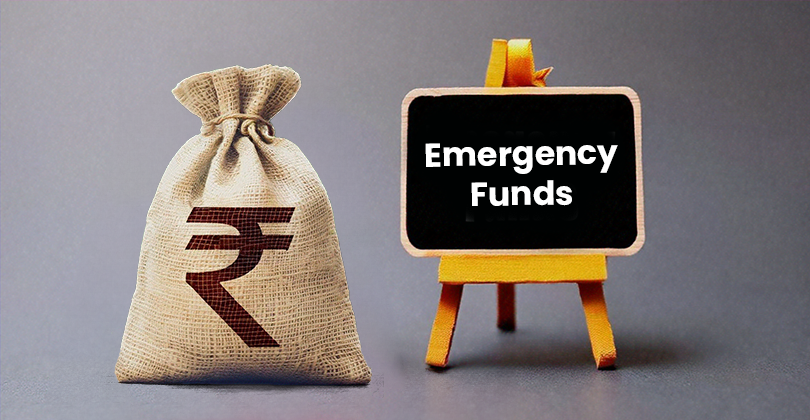Balancing finances is a real challenge, and even the most thorough financial plans can be tainted by unexpected circumstances. When encountering sudden expenditures such as
Loan settlement can be a financial option for individuals facing difficulty repaying their debts. It involves negotiating with creditors to accept a reduced payment as a final settlement of the outstanding loan balance. While loan settlement may provide temporary relief, it's essential to understand its potential impact on one's credit score.
Credit scores are crucial in determining an individual's financial health and ability to secure future credit. Therefore, comprehending how loan settlement can influence credit scores is vital for making informed decisions regarding debt management. This guide discusses the concept of loan settlement and explores its implications on credit scores.
What Is Loan Settlement And How Does It Affect Your Credit Score?
Loan settlement refers to agreeing with a lender to pay off a loan for less than the total amount owed. It typically occurs when a borrower faces financial difficulties and cannot pay the entire loan. The lender agrees to accept a reduced payment as a final settlement, effectively closing the loan.
Regarding credit scores, loan settlement can have a negative impact. When you settle a loan, it indicates that you did not fulfil your original obligation to repay the loan in full, as agreed upon in the initial terms. This information is typically reported to credit bureaus and may be reflected in your credit history.
Here are some key points regarding the impact of loan settlement on credit scores:
- Credit Score Impact: Loan settlement can generally lower your credit score as it suggests difficulty meeting the agreed-upon financial obligations.
- Reporting and Credit History: The impact on your credit score depends on how the lender reports the settlement and your overall credit history.
- Duration on Credit Report: he negative impact of loan settlement can stay on your credit report for up to seven years, potentially affecting your ability to secure new credit or loans.
- Terms and Rates: Even if you qualify for new credit, you may receive less favourable terms or higher interest rates due to the settlement's impact on your creditworthiness.
- Proactive Communication: Instead of settling the loan, it's advisable to communicate proactively with your lender. Exploring options like restructuring, refinancing, or establishing a payment plan may be more beneficial and help minimise the negative impact on your credit score.
How Lenders Handle Loan Settlements
When borrowers face difficulties repaying a loan, lenders follow a specific process to address the situation and potentially offer a loan settlement. Here's a brief overview:
- Assessment: Lenders evaluate the borrower's circumstances to determine the legitimacy of their repayment challenges.
- Non-Repayment Period: If deemed necessary, lenders may offer a temporary non-repayment period, typically around six months, during which borrowers are not required to make regular payments.
- Settlement Agreement: Lenders propose a settlement agreement where the borrower agrees to settle the loan with a single payment. In return, the lender writes off a portion of the outstanding amount.
- Amount Written Off: The specific amount written off depends on the severity of the borrower's situation and repayment capacity, determined on a case-by-case basis.
- Loan Status: After the settlement agreement and reduced payment, the loan status is typically marked as "settled" in the lender's records, indicating resolution through a negotiated settlement.
Understanding the Pros and Cons of Settling a Loan
Loan settlements can have benefits and drawbacks. Here are some advantages and disadvantages to think about:
Pros Of Settling A Loan:
- Debt Resolution: Settling a loan allows you to resolve your outstanding debt and close the loan, providing relief and financial freedom.
- Reduced Payment: You can often settle for a reduced payment through negotiation, providing immediate financial relief and making repayment more manageable.
- Avoiding Legal Consequences: Settling a loan can help you avoid potential legal actions that lenders may take, such as lawsuits or collections proceedings, saving you from further stress and possible financial repercussions.
- Time and Effort Savings: By settling the loan, you can eliminate the need for ongoing communication and collections activities with the lender or debt collectors, saving you time, effort, and potential harassment.
Cons Of Settling A Loan:
- Negative Impact on Credit Score: Loan settlements can negatively impact your credit score, indicating that you did not fulfil your original loan obligation. This may make it more challenging to obtain credit in the future and could result in higher interest rates or less favourable loan terms.
- Credit History: The settlement information will typically remain on your credit report for several years, potentially affecting your creditworthiness and limiting your access to loans, mortgages, or credit cards in the future.
- Potential Tax Implications: In some cases, the tax authorities may consider the forgiven portion of the debt through settlement as taxable income. You may have to pay taxes on the amount discounted, adding to your financial burden.
- Limited Future Borrowing Options: Lenders may view you as a higher credit risk due to your history of not repaying debts, making it more challenging to secure new loans or credit in the future.
Strategies For Dealing With The Impact Of Loan Settlement On Credit Score
When faced with the potential impact of loan settlement on your credit score, here are some strategies that borrowers can employ to mitigate the consequences:
- Explore Alternatives: Before considering loan settlement, explore other options, such as using your savings or liquidating investments to repay the loan in full. Settling should be regarded as a last resort.
- Negotiate with the Lender: Try to negotiate with the lender for more favourable repayment terms, such as an extended repayment period, reduced interest rates, or even a waiver of interest for a certain period.
- Monitor Credit Report: After reaching a settlement agreement, regularly monitor your credit report and ensure the changes are accurately reflected. Take steps to improve your credit score and maintain good credit behaviour.
📗 Related reading- Way to improve your CIBIL Score
- Consider Secured Loans: In the future, opt for secured personal loans instead of unsecured ones, as they provide collateral to the lender and reduce concerns about repayment capabilities.
- Obtain Loan Insurance: Consider obtaining loan insurance to protect against unforeseen circumstances hindering your ability to repay. This can prevent defaults and safeguard your credit score.
Conclusion
Loan settlement can significantly impact your credit score and overall creditworthiness. Borrowers must understand the consequences and evaluate alternative options before opting for settlement. By exploring alternatives, negotiating with lenders, and closely monitoring credit reports, borrowers can mitigate the adverse effects and work towards improving credit scores.
If you need financial assistance, consider exploring reliable lending platforms like KreditBee. KreditBee provides hassle-free personal loans with competitive interest rates and flexible repayment options. With a user-friendly application process and quick disbursals, KreditBee can provide the financial support you require while helping you maintain a positive credit history. Take control of your financial well-being and explore the possibilities with KreditBee today.
AUTHOR
KreditBee As a market leader in the Fintech industry, we strive to bring you the best information to help you manage finances better. These blogs aim to make complicated monetary matters a whole lot simpler.







